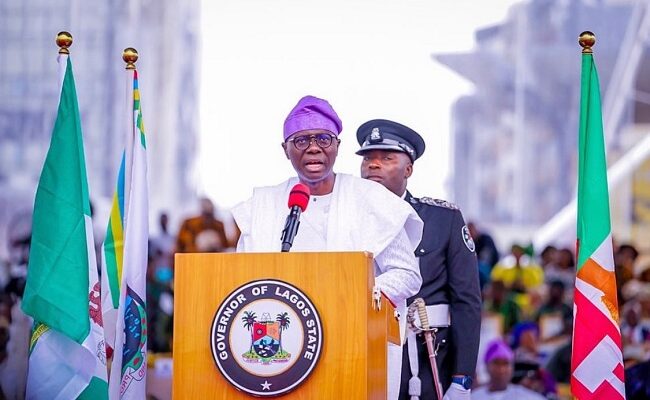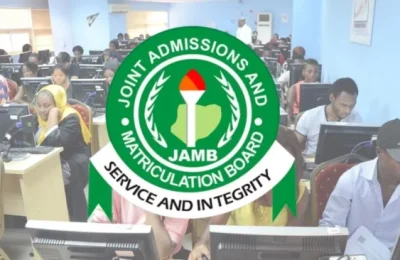

The Lagos State Governor, Babajide Sanwo-Olu, says there should be global standards to regulate digital content in the country.
Sanwo-Olu stated this as a guest at the ongoing Third Nigeria Digital Content Regulation Conference (NDCRC) organised by the National Film and Video Censors Board (NFVCB), in Lagos.
The governor, represented by Mrs Oloruntoyin Atekoja, Permanent Secretary, Ministry of Tourism, Arts and Culture. said that Lagos State had become a hub for creativity, talent, and innovation, attracting filmmakers from all corners of the globe.

“The vibrant Nigerian film industry, also known as Nollywood, has not only captivated local audiences but has also gained international recognition, solidifying its position as the second-largest film industry in the world.
“The growth of the film industry in Lagos State has not only brought immense cultural and entertainment value but has also contributed significantly to our economy.
“It has created numerous job opportunities, both directly and indirectly, for actors, producers, directors, technicians, and many others involved in the filmmaking process.

“Furthermore, it has boosted tourism, as visitors from far and wide are drawn to our state to experience the magic and diversity portrayed on the big screen.

“However, as we revel in our achievements, we must also address a pressing concern – the need for global standards to regulate digital content.
“In this age of digitalisation, where content can be easily accessed and shared across borders, it is crucial that we establish guidelines that ensure the quality, safety, and ethical standards of digital media,” Sanwo-Olu said.
The governor noted that the absence of global standards posed several challenges, adding that it had become challenging to protect the intellectual property rights of the nation’s filmmakers.
According to him, without proper regulations, practitioners’ work can be infringed upon, leading to financial losses and discouragement of creative talents.
“Additionally, the absence of standards may result in the proliferation of pirated and low-quality content, which not only harms the reputation of our industry but also affects the revenue streams of our filmmakers.
“Furthermore, the lack of global standards for regulating digital content raises concerns about the impact on our cultural values and societal norms.
“As content travels across borders, it is essential to ensure that it respects the diversity and sensitivities of different cultures.
“The absence of guidelines can potentially lead to the spread of content that may be offensive, inappropriate, or harmful to certain communities,” he said.
According to him, to address these concerns, it has become imperative for all stakeholders to work together, not only at the state or national level but also on an international scale.
“We should collaborate with fellow nations, industry experts, and regulatory bodies to establish a framework that promotes responsible content creation, distribution, and consumption.
“This framework should encompass guidelines for intellectual property protection, content quality standards, age restrictions, and cultural sensitivity.
“It should also include mechanisms for effective enforcement and cooperation among nations to combat piracy and copyright infringement.”
Sanwo-Olu, however, promised to support the growth of the nation’s film industry.
He urged the sector to uphold the highest standards of creativity, ethics, and cultural sensitivity.
He said: “I call upon all stakeholders – filmmakers, industry associations, regulatory bodies, and international partners to join hands with us in shaping global standards for regulating digital content.
“Together, let us protect the intellectual property of our filmmakers, promote high-quality content, and preserve the cultural fabric of our society.
“By doing so, we can pave the way for a thriving and globally respected film industry that not only entertains but also inspires and unites people from all walks of life.”
In his goodwill message, Malam Lanre Issa-Onilu, Director-General, National Orientation Agency (NOA), said that the creative industry was central to the idea of orientating Nigerians on the true value system.
Onilu said, “I can’t think of any other influencer than this industry.
“I consider the people in this industry as my primary stakeholders, and without them, we cannot achieve the objectives on which NOA was set up.
“We must mould the mindset of our people in this country. The people in this industry must be mindful of Nigeria’s value system in whatever script and content to tell the best story about the country.”
Also speaking, Prof. Abba Tijani, the Director-General of the National Commission for Museums and Monuments, emphasised that the creative industry remained at the foremost seat in building the nation’s cultural identity.
“We have so much to say about our culture and identity because these identities are reflected in our arts, culture, tradition, value system. We must visit museums and embrace our artifacts,” Tijani said.
Commenting, Prof. Sunday Ododo, General Manager, National Theatre, urged the stakeholders to create content that would create a Nigeria everyone would be proud of.
The conference had in attendance several veterans in the creative and film industry.
READ ALSO FROM NIGERIAN TRIBUNE









